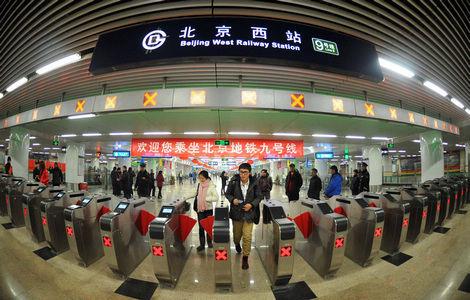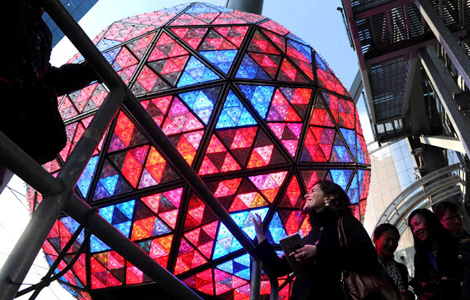|
|||||||||||
BEIJING - Still frustrated about Chinese workers taking your jobs? Well, you might have to think again, especially considering where the fruits of your labor go.
According to the latest official count, amid a decelerating economy at home, Chinese consumers bought nearly $1.6 trillion worth of goods and services from other countries and regions during the first 11 months of 2011.
Today's China is not just about manufacturing and exporting. The country is also emerging as a buying power.
The Chinese government is counting on domestic consumers to rebalance its export-driven economy, while others look to a free-spending China to pull them out of economic mire.
Consumer confidence in the European Union and the United States, China's top two trade partners, continued to weaken in 2011 as the two economies continued to struggle through their sovereign debt crises.
Faced with increasing external uncertainties, China's imports, however, expanded faster than the pace of exports, further squeezing the country's trade surplus. There has even been talk of a possible trade deficit in 2012.
A trade deficit is nothing new to the world's second largest importer. As a result of globalization and the international division of labor, China has had long-term deficits with Japan, the Republic of Korea, the ASEAN and other major intermediate producers.
With the transfer of large numbers of labor-intensive processing and assembling sectors to China from these nations and regions, their surpluses with the US and the EU were also transferred to China, making China the subject of criticism in the two markets in past years.
The year of 2011 marked the 10th anniversary of China's accession to the World Trade Organization. The past decade thrust the country into the top spot in a range of industries, and it has become the world's largest consumer of automobiles, personal computers and smartphones.
Increasingly wealthy Chinese consumers have also upped spending on some of life's other finer things, ranging from luxury bags to chocolates. The World Luxury Association predicted that China will surpass Japan as the largest luxury market in 2012.
However, the business world seems to have been incapable of tapping into a group of consumers with enormous potential - people who are not that rich, like farmers.
The country's rural population of nearly 700-million people only contributes to 30 percent of total consumer spending, lagging far behind their urban counterparts.
But how to fill the gap? Marketing strategies that work well in cities might run in vain in the countryside, and special offers or discounts may not attract farmers like they do city dwellers.
If you could persuade Chinese farmers to buy your products as gifts on ceremonial occasions, though, the outcome would amaze you.
Remember: the rise of a buying power depends on not only buyers, but also - and sometimes more importantly - sellers.
Hot Topics
Kim Jong-il, Mengniu, train crash probe, Vaclav Havel, New Year, coast guard death, Internet security, Mekong River, Strait of Hormuz, economic work conference
Editor's Picks

|

|

|

|

|

|







